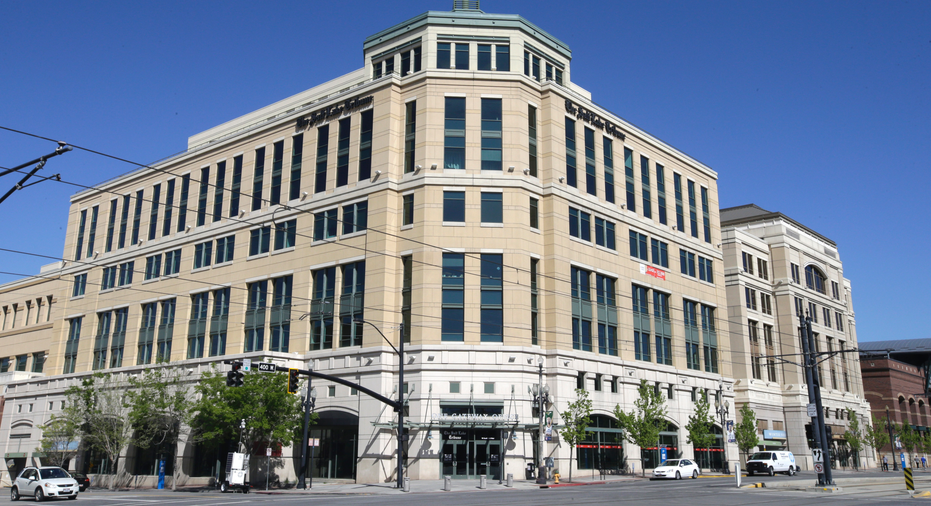In Denver, trying to put a price on the value of a newspaper

DENVER – Across the street from the Colorado Capitol rises an 11-story building emblazoned with The Denver Post's logo. No reporters work out of the building any more, only executives of Digital First Media, whose cuts at the Post triggered an unusual plea from the paper's own editorial page to be sold to another owner.
Five hundred miles to the west, the Salt Lake Tribune newsroom takes up one floor of the building that bears its name, overlooking snow-capped mountains and the arena where the Utah Jazz play. Once a Digital First property that dealt with staff reductions and feared closure, the paper was sold to a prominent local family in 2016. Since then, its reporters received their first raise in a decade and won a Pulitzer Prize for investigative reporting.
Though its home city is less than one-third the size of Denver, the Tribune's newsroom staff of about 90 is larger than the Post's roughly 60, who work out of leased offices in an industrial area northeast of the city.
"Denver is such a big, vibrant community to have a staff that is smaller than ours -- that's just a mockery," said Mike Gorrell, a veteran Tribune reporter.
As Colorado's civic community tries to mount a journalistic rescue mission and buy the Post, it is looking to Salt Lake City and other cities like Boston, Minneapolis and Philadelphia that have seen wealthy residents keep their newspapers viable. What happens in Denver could be a signal to a battered newspaper industry, reeling from dwindling ad revenues, of what the future looks like.
"You've got a better shot when there's a local owner -- there's going to be pressure on that person to keep that asset vibrant," said former Denver Post editor Greg Moore, who contributed a column to the Post's April 9 editorial package. "If Denver's future was like Salt Lake's and they had a local owner with deep pockets who cared, that'd be the best outcome."
That was the hope of the Post's editorial page when it published its rebellious call for a sale with the headline: "As vultures circle, The Denver Post must be saved." Editorial Page Editor Chuck Plunkett did not inform the newspaper's editor or owners of the editorial and accompanying columns slamming Digital First and the New York-based Hedge Fund that owns it, Alden Global Capital, which the editorial called "vulture capitalists."
"The smart money is that in a few years The Denver Post will be rotting bones," the editorial warned.
Digital First and Alden did not reply to requests from The Associated Press for comment. The chain owns more than 80 newspapers and is known for cutting deeply. Critics say it vacuums up the profits from the reduced newsrooms and funnels them into other ventures.
In the days after the Post editorial, the editor of the Bay Area News Group, also owned by Digital First and reeling from heavy cuts, published a sympathetic column . Last week, the editorial page editor of the Boulder Daily Camera, another Digital First property, self-published his plea for a buyer, saying his bosses would not allow it in their newspaper.
It's unclear if the Post is even for sale, and there's no guarantee of a buyer surfacing in Denver.
Colorado's civic scene does not have a dominant family like the one in Utah who purchased the Tribune, the Huntsmans, which includes the recently deceased Jon Huntsman Sr., who founded an $11 billion industrial company. His son is Jon Huntsman Jr., the former governor of the state who is now the U.S. ambassador to Russia.
Colorado billionaire Phil Anschutz has long been rumored as a possible buyer, but he also owns the rights to the name of the shuttered Rocky Mountain News, and has explored reviving that paper in the past instead. Anschutz owns the Colorado Springs Gazette and has built a political vertical to compete with the Post's coverage.
Colorado Gov. John Hickenlooper says he's been talking with local leaders about assembling possible buyers. Potential contributors include Colorado billionaires like John Malone, chairman of the board of Liberty Media, and Pat Stryker, a major liberal political donor. One group of philanthropists is traveling to Philadelphia to study how charities there bought the Philadelphia Inquirer and Daily News in 2016, according to Bruce DeBoskey, a Denver philanthropic adviser.
The only group to surface publicly is a consortium in Colorado Springs that pledged $10 million toward purchase of the newspaper. "We still believe in print," said John Weiss, publisher of an alternative newspaper in Colorado Springs and six other small newspapers, who is part of the group.
J.B. Holston, dean of the University of Denver's school of engineering and computer science, has been convening meetings about the Post, but said some in the group lean toward starting a new, largely or entirely digital newsroom to bind the fast-growing city together.
But newspaper analyst Ken Doctor warned there's no proven substitute for a local newspaper.
"In this whole debacle of American journalism and especially with what Alden's done, we haven't seen anyone enter the scene with a real replacement," Doctor said.



















